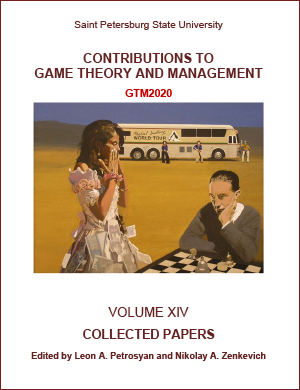On the Value of the Preexisting Knowledge in an Optimal Control of Pollution Emissions
DOI:
https://doi.org/10.21638/11701/spbu31.2021.04Abstract
For a classical differential game of pollution control, we consider how the possession of specific information would impact the payoff of some players compared to cases in which the knowledge of information is incomplete. To measure the resulting discrepancy, we use the notion of value of information (VoI). Specifically, we study two scenarios, one in which the role of knowledge about the terminal cost is studied, and the other one, in which we analyze the influence of knowledge about the exact value of the upper bound on control. For each case, we obtain explicit analytical expressions for the payoff functions. These functions are used to quantify the exact value of information.
Keywords:
differential game, pollution problems, value of information, optimal control and trajectory
Downloads
References
Downloads
Published
How to Cite
Issue
Section
License
Articles of "Contributions to Game Theory and Management" are open access distributed under the terms of the License Agreement with Saint Petersburg State University, which permits to the authors unrestricted distribution and self-archiving free of charge.




